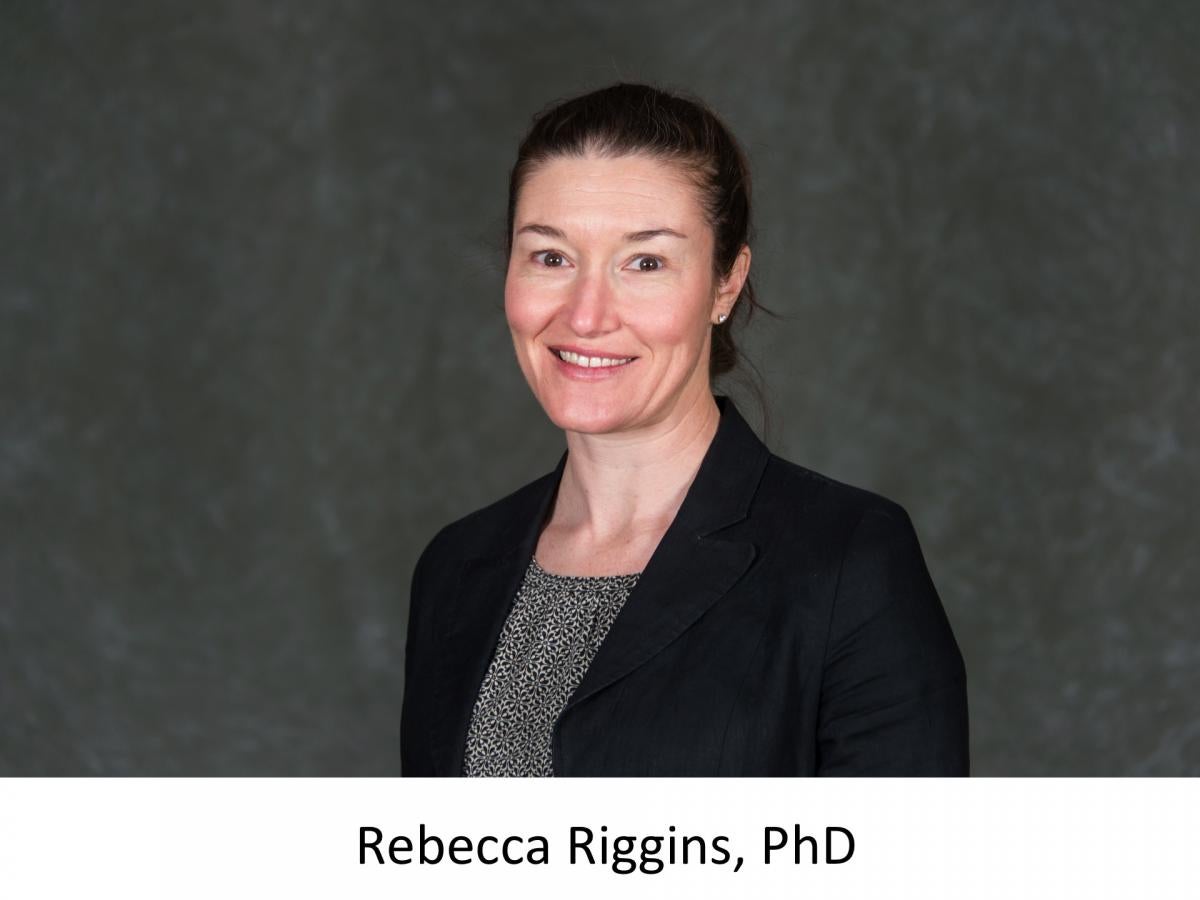Partners in Research Funds New $100,000 Research Breakthrough Award
Posted in GUMC Stories | Tagged Partners in Research
September 26, 2017 – A project started five years ago aimed at getting science-minded members of the community involved in selecting and funding early stage research at Georgetown University Medical Center has graduated.
“Partners in Research” typically hands out three to four grants totaling about $30,000 each. For 2017-2018, six research projects were funded and a new “Research Breakthrough Award” worth $100,000 was added to the portfolio.
Breakthrough Award
The Research Breakthrough Award is designed to support “high-risk research and challenge investigators to push boundaries to advance our goal of enhancing the health and well-being of those we serve.”
Cancer researcher Rebecca Riggins, PhD, is the inaugural recipient of the new  award, selected Sept. 25, when Partners in Research donors gathered at Georgetown to select the winner from four finalists.
award, selected Sept. 25, when Partners in Research donors gathered at Georgetown to select the winner from four finalists.
Riggins, an assistant professor of oncology and a member of Georgetown Lombardi Comprehensive Cancer Center, started her career studying breast cancer. But her new award allows exploration of a deadly form of brain cancer called glioblastoma.
“We have known for decades that estrogen receptors play an important role in breast cancer. We are now learning that there are somewhat related, estrogen receptor-like proteins in brain cancer that might be good targets for treatment” explains Riggins, whose 2012 Partners in Research award helped provide the initial funding.
Riggins says the goals of her research will be to see if a particular estrogen-related receptor can limit the ability of the glioblastoma to grow and spread in the brain, and why commonly used drugs to treat the cancer stop working or become resistant.
“This Breakthrough Award is so impactful because it will enable us to immediately take an exciting laboratory finding to the next step,” Riggins says. “It also gives us the freedom to take some risks and ask innovative questions that we hope will tell us why brain tumors stop responding to treatment.”
Filling a Gap
Since its inception five years ago, the program has funded 29 projects and raised more than $850,000.
In addition to the Research Breakthrough Award, six smaller grants were also awarded this fall. Totaling $30,000 each, these awards are designed to provide Georgetown researchers with initial seed funding “to pursue innovative ideas with the potential to make a significant impact in health and medicine.”
This year’s recipients are:
- Ghazaul Dezfuli, PhD, and Kenneth Kellar, PhD (weight regulation);
- Joanna Kitlinska, PhD, and Sonia De Assis, PhD (paternal pre-conception stress and neuroblastoma development);
- Rhonda Freidman, PhD, (alexia treatment);
- Italo Moccheti, PhD, and Valeriya Avdoshina, MD, PhD (HIV-associated neurocognitive disorders);
- Patrick Forcelli, PhD, Kathryn Sandberg, PhD, and Robert Speth, PhD (cognitive decline); and
- Gholam Motamedi, MD, Jian-Young Wu, PhD, and Peter Turkeltaub, MD, PhD (insomnia treatment).
“Partners in Research was created to fill a gap – very early stage, high-risk, high-reward research that nobody else will support,” explains Robert Clarke, PhD, DSc, dean for research at Georgetown University Medical Center.
From small to big
Awarding such seed funding is a strategy with a history of propelling research at Georgetown.
Pharmacology researcher Daniel Pak, PhD, was the recipient of three grants from Partners in Research – each allowing him to generate data to compete for larger awards, including federal grants.
Just this summer, Pak, who studies Alzheimer’s disease, received a highly competitive R01 grant from the National Institutes of Health – the oldest funding mechanism and a significant milestone for the research.
“During my first two-years doing this work, Partners in Research was the only funding source, so none of the research would have been possible without this support,” Pak says.
